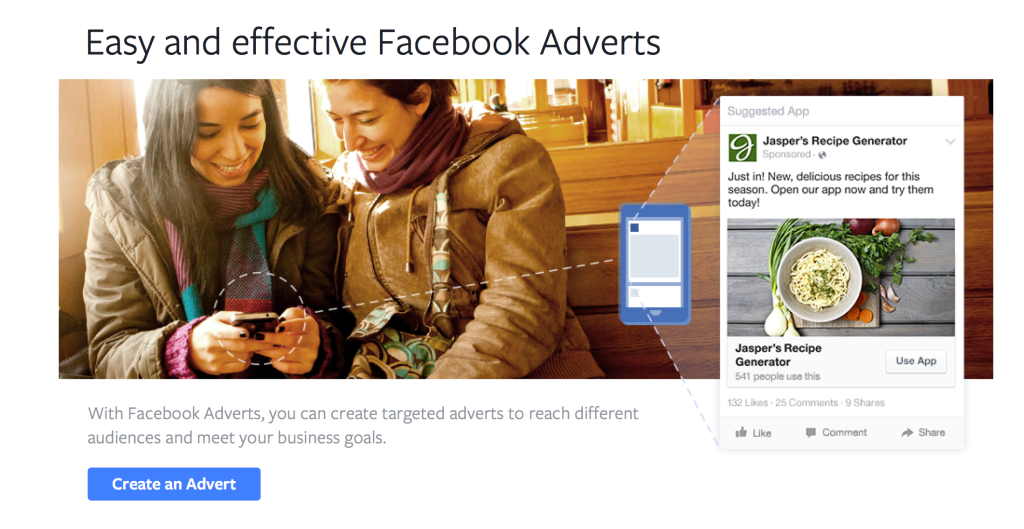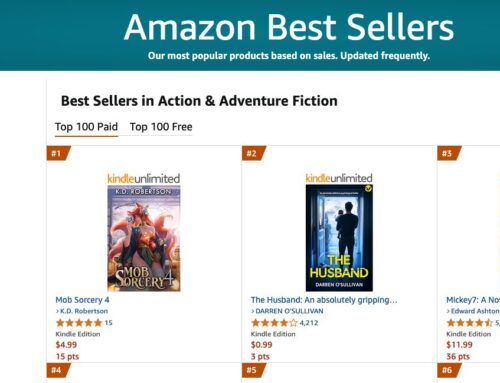So many times authors join a social media group called “Review Swaps” or “Author Swaps.” These groups have been set up quite innocently so that authors can get free Amazon Customer Reviews. Unfortunately swapping your book for a review on Amazon is actually a pretty bad idea – and I have found a lot of authors still don’t understand why. Let’s take a look.

Are you really going to leave an unbiased review for a swapsie?
If you can be proven to be connected or you are directly in touch with someone who leaves a Customer Review, this is against Amazon policy and can result in that review, or worse, that person’s Amazon account being removed from Amazon.
Most authors think that as long as their book is being swapped for free, it’s OK to solicit reviews, due to this exception rule on Amazon,
“The sole exception to this rule is when a free or discounted copy of a physical product is provided to a customer up front. In this case, if you offer a free or discounted product in exchange for a review, you must clearly state that you welcome both positive and negative feedback.”
and because of this FAQ on Amazon:
“Are authors allowed to review other authors’ books?
Yes. Authors are welcome to submit Customer Reviews, unless the reviewing author has a personal relationship with the author of the book being reviewed, or was involved in the book’s creation process (i.e. as a co-author, editor, illustrator, etc.). If so, that author isn’t eligible to write a Customer Review for that book.”
So what’s the issue?
The Amazon TOS states, “Family members or close friends of the person, group, or company selling on Amazon may not write Customer Reviews for those particular items.”
So being in contact, in the same group, or being friends with that other author is going to be perceived as unbiased. This is not allowed.
Why?
Let’s take the example of you being in an author swap situation. You join a group, and ask for a swap. Another author writes you a public comment that they will swap with you. Then you write each other a few emails, being nice about the swap. The reason Amazon does not allow you to do this is simple: are you really now going to write an unbiased review? Really?
Let’s say their book really sucks once you get your hands on it. It’s a one-star book. Their cover is offensive. Now, look me in the digital eye and tell me you would write “this book is awful and the cover is offensive” when they have written a five-star review on your book page. You are now in the horrible situation of having to lie about a product on sale on Amazon and leave a fake review. That’s the reason this is not allowed.
To make this crystal clear, Amazon adds,
“We have a zero tolerance policy for any review designed to mislead or manipulate customers. Customer Reviews help customers learn more about the product or genre, hear the reasons behind your star rating, and ultimately decide if this is the right product for them or not. Authors and artists can add a unique perspective and we very much welcome their customer reviews. While we encourage reviewers to share their enthusiasm and experience, there can be a fine line between that and the use of customer reviews as product promotion. We don’t allow anyone to write customer reviews as a form of promotion and if we find evidence that a customer was paid for a review, we’ll remove it. If you have a direct or indirect financial interest in a product, or perceived to have a close personal relationship with its author or artist, we’ll likely remove your review.”
“To help illustrate, here are a few examples of reviews that we don’t allow,”
One of the examples given is:
- An artist posts a positive review on a peer’s album in exchange for receiving a positive review from them“
Exchange the word “artist” for “author” and “album” for “book.” You see their point. Another example:
- A customer posts a review of a game, in exchange for bonus in-game credits
So change up “customer” for “author” and “game” for “book” and “Bonus in-game credits” for “a positive review on their book” and you’re getting the idea.
They go on to say that they do not allow,
“Sentiments by or on behalf of a person or company with a financial interest in the product.”
If you wrote a review for another author so they would write one for you, it could be argued you have a direct financial interest in that product.
Amazon tracks reviews. All Amazon has to do is check out the public comment linking the two of you, or even if they just check out how two authors have got a review on each other’s page, and bingo, you have broken the rules. Deletion of the account of the person who left the review will probably occur. This could be fatal for an author relying solely on Amazon for sales if their account is deleted due to a fake review.
There’s also this rule, just to stick an oar in further, in the Prohibited Activities TOS.
“You may not intentionally manipulate your products’ rankings, including by offering an excessive number of free or discounted products, in exchange for a review.”
So that’s definitely what you are doing when you advertise a free copy of your book to a whole group of people in exchange for a review.
Well then, how the heck am I supposed to get reviews?
The answer to that is really simple, but most authors don’t want to accept the truth – you need to sell your book by doing the legwork. Posting fake reviews on Amazon is a sure-fire way to mess up your book campaign.
A word on disclosure…
U.S. federal consumer endorsement and fraud laws require any payments or services (including service of getting a review of your own book however swapped, exchanged or assigned) be disclosed if posting in with consumer/customer reviews. Therefore, any review that was gotten by a swap or free copy must be disclosed as such “I reviewed this book in exchange for a free copy of the book.” However, this would be a lie if you swapped books by buying them. So then you would have to say, “I bought and reviewed this book in exchange for the author buying and reviewing mine.” Hmmm. Now it’s looking rather manipulated, don’t you think? Considering since 2009 the US government has been threatening fines to any reviewer who does not disclose (reported by Wired Magazine), it’s another gremlin in the works to consider when thinking of doing a swap. Here’s the FTC’s FAQs on that.
Look, you may very well get away with it.
But why bother? The reason it’s grey is that Amazon still does manual removals. They have a huge team of people who interpret the rules on a case-by-case basis. One Amazon staff member may be more experienced than another. One might be really, really good at sleuthing connected authors. They also do automatic removals – no input from a human being at all. They will just hit delete based on a connection they found across the internet, because Amazon pools what they called “social data” from other internet sites and groups to make recommendations to you.
Here’s an interview at Tech Crunch with Peter Faricey, the vice-president of Amazon Marketplace, where he admits this usage. He says, “we don’t publicly discuss what kind of data we use for the recommendation, but certainly social data that’s publicly available … is certainly one of the inputs we use.”
If Amazon doesn’t find you, your readers might…
Some people love to take down others at any cost. There are Amazon Customers who report reviews for abuse on a regular basis. They can click that “Report” button and explain how they found you soliciting for reviews online. So don’t underestimate the mean, nasty, twisted general public.
The bottom line is, it’s just not worth losing your Amazon account, reviews, or ranking over a few reviews, because one thing’s for sure – it’s really hard to get them to reinstate your account.
Real Amazon Verified Customer Reviews are important for ranking, exposure, and getting more sales
Concentrate on marketing, and spend some money on proven ways to get readers to buy your book and leave reviews. BookBub aside, now the Holy Grail due to its difficult gatekeeping policies for indie authors, there are other options.
- At SPR, we offer marketing services via reader lists within TOS on Amazon that gets you Amazon Reviews naturally, for example.
- Try using mailer services (avoid affiliates) to promote your book to readers, but make sure they do operate within TOS. See our list of providers here with affiliate information added.
Use adverts on Facebook. Still the only reliable way to drive readers to your book page outside of paying someone to do it for you, 1.4 billion people use Facebook, and that gives you a huge audience to advertise to. Each sale will cost you around $4-8, but you will start selling books.
Use Giveaways on Goodreads. Randomly chosen, qualified Goodreads winners will be more likely to leave a review if they won the book.
Do a book tour to build exposure on Google. We recommend Promotional Book Tours, which will get you more than 25 book bloggers writing about your book online, and some have been known to buy and read your book of their own volition and leave a Customer Review.
So cut the baloney… how many Customer Reviews do I really need?
The answer is as many as possible, often and little, but the magic number for ranking seems to start around the 100 reviews mark for social proof, i.e. your product is believably good.
Since June 2016, the Amazon Algorithm now rewards a drip-drip sale and review method. Therefore you should aim to get a bunch on launch, say, maybe 20-50, and then drip feed a few a week going forward. This will maintain your high rank after launch. Because you did spend time, money, and energy on your big launch, right? Right? This is your book you just spent ages writing, and you get rewarded by Amazon for marketing well. We offer marketing to achieve these things, including a “soft launch” style marketing deal that you can use to boost your sales in one go, even if you didn’t actually do it right when you released your book.
Note you need Verified Reviews, i.e. honest purchase followed by review. This is the only type of review you should seek out. Why? Read this to see how easy it is for Amazon to spot a fake/swap review.
None of what you do to promote your book will be cheap, and hardly anything that works will be free
If these are the only methods you intend to use, you may as well take up scrapbooking or potato printing. Because nowadays, you have to be a professional.
To be a self-publisher, you are up against thousands of authors spending thousands of dollars on their work, and therefore if you are really serious about promoting your book and getting reviews, the hard lesson is if writing and self-publishing is not a hobby for you, and you actually want some success and return on investment, like any business, you are going to have to advertise and work at your marketing plan.
If all the author review swap groups started swapping marketing tips instead, the world of indie authoring may be a happier and more successful place.
Get an Editorial Review | Get Amazon Sales & Reviews | Get Edited | Get Beta Readers | Enter the SPR Book Awards | Other Marketing Services
























When I traveled in Germany, I noticed the enormous difference between Bavaria (Munich) and Prussia (Berlin). People in Munich were friendly, helpful and fun-loving. Those in Berlin were dour, dogmatic, and obsessed with rules.
To give an illustration, I just missed a bus in Berlin. It pulled out of the stop, moved ten feet forward and then stopped for a red light. Needing to get on, I knocked on the door. The driver pointed ignored me. I’ve traveled enough to know that in 99% of the world, he’d have opened the door and let me board. Not so in cold, unpleasant Berlin.
Amazon’s a lot like Berlin. It is dour, dogmatic, and obsessed with rules, much as is noted in the article. The rest of publishing, that 99% I mentioned, isn’t that way. Books often come out with blurbs inside or as part of their promotion. Those blurbs are typically written by friends or professional colleagues of the author. No one sees anything wrong with that. The first review of Tolkien’s The Lord of the Rings was written by his friend C. S. Lewis. Was that review inaccurate? No, it was a marvelous description of the book by someone who’d long known the author and even played a role in its writing.
Those most suspicious of others engaging in certain practices are typically those who most engage in those practices themselves That’s certainly true of Amazon. Did, for instance the DOJ’s lawsuit against Apple for alleged price-fixing come out of the blue? No, the idea came from a Seattle law firm that’s but a ten-minute walk (yes, walk not drive) from Amazon’s international headquarters in Seattle’s South Lake Union. Was it put up to that task by Amazon? Almost certainly. Has Amazon been open and upfront about that prompting? Not that I recall. Take note that contriving a federal lawsuit against an opponent while operating the the shadows is far more morally dubious that a friend reviewing a friend’s book?
We now turn to facts I know from personal experience. During the debate over the Google Book Settlement, a small Manhattan law firm, claiming to speak for seven authors or their estates, asked for a two month delay in that settlement that proved the key to blocking it. I was one of those seven authors, filling what I called the “who’s he” category alongside such literary giants as John Steinbeck, represented by his estate.
Who was paying that law firm? Not me. I contributed a nominal $25 and, from my conversations with the others involved, I got the impression that none were major contributors. Instead, we were merely the public face of that request for delay. We certainly approved of it and none was being bribed. But none was bankrolling it. Who was funding it? Amazon of course. Indeed, a short time afterward my lawyer in that case moved to Seattle to work for Amazon.
As you can see, Amazon is playing a nasty little game of corporate “do was we say not as we do.” Amazon engages in activities as extremely serious as legal actions against competitors using federal courts and taxpayer monies, and it does so deceptively behind the cover of others. Given that behavior, Amazon has no grounds for demanding that friends of authors not review their books. The latter is innocent and ordinary. The former is creepy beyond belief.
On a broader note, you might say that Amazon is the nasty, unpleasant corner of publishing, bringing into an once congenial field all the nastiness and the militaristic mindset that a century ago led most Europeans to curse the Prussian authoritarian, might-makes-right mindset.
G. K. Chesterton, a British author during the first third of the twentieth century, once commented that he had a friend who’d rather be in hell than Berlin, but who would rather live in Munich than heaven. Many authors feel the same about the current book retail market. Amazon, with its demands, dictates, and dour rules, is like Old Prussia, a culture no outsider liked and one that would do the world great harm in the first half of the twentieth century. The rest of book retailing isn’t perfect, but it can at times resemble Munich during Oktoberfest
http://www.oktoberfest.de/en/
Lots of pretty girls, partying, and beer by the mugful. I still regret missing it by a couple of weeks. I made the mistake of thinking Oktoberfest was in October. Those fun-loving Bavarians can’t wait that long. It starts in mid-September. Darn it!
I tried to imagine a parallel celebration that would resemble Amazon but drew a blank. If such a celebration were held, no one would attend. A better illustration of Amazon is the company’s infamous Gazelle Project as described by the NY Times:
‘The company’s relationship with those publishers was called the Gazelle Project after Mr. Bezos said Amazon “should approach these small publishers the way a cheetah would pursue a sickly gazelle.” A joke, perhaps, but such an aggressive one that Amazon’s lawyers demanded the Gazelle Project be renamed the Small Publishers Negotiation Program.’
http://bits.blogs.nytimes.com/2013/10/22/a-new-book-portrays-amazon-as-bully/?_r=0
Friends reviewing friends is evil, according to Amazon, but negotiating with small publishers “the way a cheetah would pursue a sickly gazelle” is a proper business practice according to Jeff Bezos. When it comes to business ethics, Amazon comes up most lacking. One set of rules for others, nasty and unpleasant. Another for itself, secretative and deceptive.
Germany aside (I love Berlin btw! And my favorite thing was the buses being on time in six-inch snow, so…) Amazon is a private company, something authors forget. If these are their rules, which personally I think make a lot of sense for those of us who don’t want to be outdone by fakers, I think that’s OK. Like anything in business, the only way to make it work is to be a professional. Amateurs getting their mates to write reviews to make their books sound like they are up to scratch is not fair on authors that do take time to make sure their book is a good product. To me, it’s sensible. To many amateurs, of course it doesn’t sound fair – they think self-publishing is a hobby and not a business venture. But really, to me what isn’t fair is trying to work out if what a reviewer is saying is true or fake when choosing books to read on Amazon. The word “professional” means charging money for something, and if authors are going to lie about what they are selling, maybe it’s deceptive to do that, more than blaming Amazon for being stringent about removing reviews. For me, I’m about transparency and quality with authorship. It’s not fair to see tens of awful low-quality romance books drowning out the quality products on Amazon’s lists for example, with their pile of puff reviews and bot sales. Let’s hope that authors can avoid these temptations and start producing quality books that deserve and get reviews by unbiased methods allowed by Amazon, to me for good reason – Amazon is not a church fair selling scrapbooks and jams, after all.
Authors have helped other authors with book sales for years-decades in fact.
Amazon is running a thin argument here.
However since traditional published works often have authors giving recommends then any author who claims his page should at least be able to enter those recommendations through the author page to show up on the book page.
Then your argument becomes moot.
Because even though it’s not in the review section authors have been helping each other for a long time.
It just has to not be in the review area–which is pretty petty.
J.L. Dobias
If this one also a bad idea and you do not recommend review swap, what can a new author do to get some reviews 🙁
You can get all the ideas here – what you need to do is promote your book to the public and start selling. Take a look at the site for some options.
Thank you for your article. I was considering using the Book Review Swap service a Pubby but then found your very helpful article.
It led me to check them out further in Google and was rather shocked at what their customers are writing on sites like TrustPilot.
Poor customer service, fraudulent charges, and bogus reviews that later disappear.
Its clear this site runs against Amazon’s Terms and Conditions so why does Amazon allow them to continue?